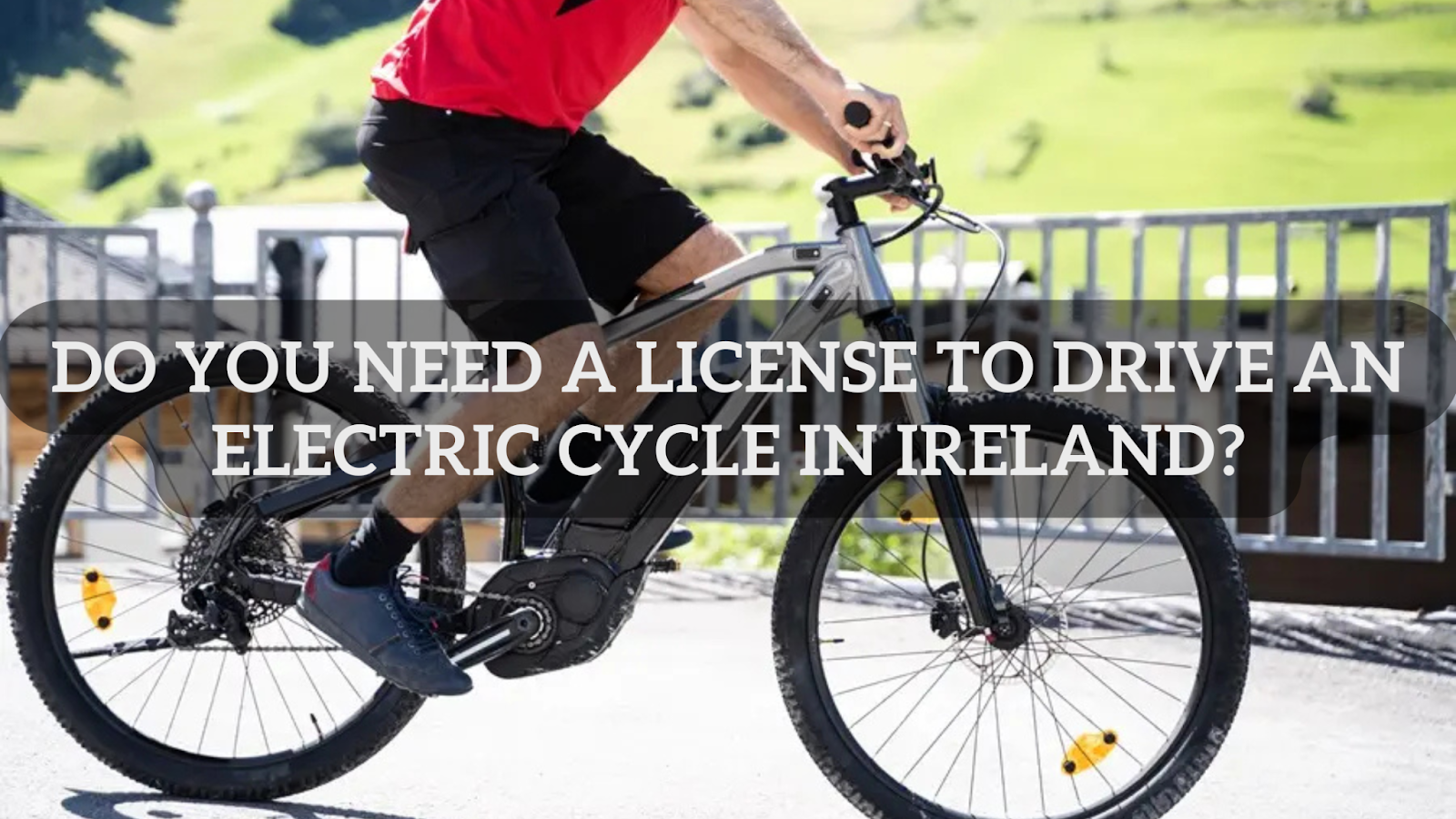The number of electric bikes on Irish roads is increasing every day. Some people have switched to e-bikes for the health benefits, while others want to save money and help protect the planet. Of course, some just enjoy cycling and see electric bikes as a “less tiring” alternative. But, regardless of the "why," everyone is subject to certain laws and regulations—especially when it comes to the license for electric bikes.
If you want to know more about the licensing laws for electric bikes in Ireland, you've landed on the right page. From insurance to taxation, registration requirements, and whether you need a license for electric bikes, this guide covers everything. Let’s start by looking at how Irish law defines an electric bike.
Definition of an Electric Bike
As per the Road Traffic and Roads Act 2023, a pedal-assisted bike or bicycle will be regarded as an electric bike (e-bike). Pedal-assisted means the motor stops providing power when you stop pedaling.
The legislation also lists FIVE technical requirements that every e-bike should meet:
- A maximum power output of 250 watts or less.
- A maximum speed of 25 km per hour.
- A motor that cuts off once you stop pedaling.
- Front and rear lights.
Any electric bike that meets these technical requirements will be subject to the same road laws as a conventional bicycle. However, if the specifications of your electric bike exceed the ones mentioned above, it will be treated as an e-moped, which may require a license for electric bikes.
Licensing Requirements for Electric Bikes in Ireland
As mentioned above, Irish law treats electric bikes as traditional bicycles. That means an electric bike with:
- ≤250 watts of power output
- ≤25 km/h maximum speed
does not require a license for electric bikes in Ireland.
However, if the maximum power output of your e-bike reaches 1000 watts, it will be categorized as an MPV (Mechanically Propelled Vehicle). The licensing rules for MPVs (e-mopeds, motorbikes, cars, buses, etc.) are different from those for non-MPVs (low-power electric scooters, electric bikes, bicycles).
The table below showcases the different classifications of 2-wheeled MPVs and their licensing requirements:
| Vehicle Type | Max Power Output | Max Speed | License Required |
|---|---|---|---|
| L1e-A Powered Cycle | ≤1000 Watts | ≤25 km/h | NO |
| L1e-B High Power E-Moped | ≤4000 Watts | ≤45 km/h | YES |
| L1e-B Throttle E-Moped | ≤4000 Watts | ≤45 km/h | YES |
Although the L1e-A powered cycle does not require a license for electric bikes, it must be registered with the authorities, insured, and taxed. The other two classes—L1e-B High Power E-Moped and L1e-B Throttle E-Moped—require a license for electric bikes, as well as registration, insurance, and motor tax payments.
In some countries, obtaining a license for electric bikes is compulsory.
However, the European Union, including Ireland, is more lenient when it comes to electric bike licensing and registration. Most European countries do not require a driver's license for electric bike riders, and Ireland is no exception. However, certain road laws are still applicable to electric bikes.
Other Road Laws for Electric Bikes in Ireland
New cycling laws in Ireland came into force in September 2024. Electric bikes and electric mopeds fall under the same umbrella. So, to keep our readers well-informed, we’ve put together this section that lists all Irish road laws applicable to electric bikes.
Age Limit
Ireland’s laws do not specify any age limit for a bicycle rider, and since electric bikes are treated as conventional bicycles, there is no age limit for e-bike riders. However, children under 16 should be supervised by an adult when riding an e-bike on the roads. Riders of e-bikes with powerful motors (over 1000 watts) must be at least 16 years old.
Registration, Insurance & Motor Tax:
Electric bikes with ≤250 watts of power output and ≤25 km/h maximum speed do not need to be registered or insured. There is also no annual motor tax for these electric bikes. However, e-mopeds with ≤1000 watts of power output must be registered with the authorities, and motor tax should be paid. Insurance is not needed. E-mopeds with ≤4000 watts of power output will require registration, insurance, and motor tax payments.
Protective Equipment:
While cycling helmets are strongly advised, it is not illegal to ride an e-bike without one. However, riders of e-mopeds are required by law to wear a motorcycle helmet, and hi-visibility clothing is strongly advised.
Road Usage & Traffic Rules for Electric Bikes in Ireland:
Electric bikes must follow the same road rules as conventional bicycles:
- E-bikes can ride on local and national roads.
- E-bikes are not allowed on motorways or footpaths.
- Riders must use cycle lanes or bus lanes where available.
- E-bikes are allowed on public transport.
- Riders must follow traffic lights and signals from the Gardaí and avoid using mobile phones while riding.
Conclusion
So, the answer to the question, “Do you need a license for an electric bike in Ireland?” depends on the power and speed of your electric bike. If it falls under the same classification as a conventional bicycle, you don’t need a license. However, if it has more power, a license is required.
Even if you don’t need a license for your electric bike, we strongly advise following all traffic laws and regulations to ensure your safety. Stay safe, follow the rules, and enjoy your ride!

